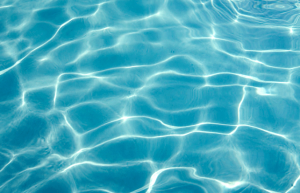Spas at the boiling point – the domestic spa industry has overcome a difficult season
Hungarian spas were unable to reach pre-Covid levels of attendance even in the summer of 2025, while operating costs and weather extremes pose an increasing challenge. The return of foreign tourists is improving the statistics, but the decline in domestic tourist traffic and persistently high energy prices are forcing new strategies in the sector – wrote Portfolio.
17 percent drop compared to pre-epidemic levels
 According to an analysis by the Hungarian Bath Association summarizing data from 49 baths In the 2025 summer season, domestic spas welcomed 5.45 million visitors nationwide, which is 17 percent less than in 2019 and 10 percent lower than last year’s values.
According to an analysis by the Hungarian Bath Association summarizing data from 49 baths In the 2025 summer season, domestic spas welcomed 5.45 million visitors nationwide, which is 17 percent less than in 2019 and 10 percent lower than last year’s values.
According to Zoltán Kántás, president of the Hungarian Spa Association, the operators had an “average season”: a weak July was followed by a stronger August, but the overall picture still falls short of expectations.
The decline is due to several factors: cooler summer weather, high operating costs and changed consumer habits all worsened performance.
Foreigners keep Budapest’s spas alive
The capital’s facilities show a slightly more favorable picture: the beaches and thermal baths operated by the Budapest Spa and Thermal Baths Co., Ltd. welcomed a total of 1.2 million visitors in the summer months, generating revenue of over 7.6 billion forints.
However, the growth here fell short of expectations, and the vast majority of guests continue to be foreigners – their share in the historic baths was 83 percent in the first seven months of the year.
The most important sending countries are the United Kingdom, Spain, Italy and the United States, but France and Germany are also decisive players.
Hungarian guests, on the other hand, spent more modestly: many prefer short, one-day beach trips choose or completely skip the season, which has a sensitive impact on the financial situation of spas that rely on admission tickets.
Energy prices continue to strain budgets
Although many operators have implemented energy efficiency investments, the cost side of spas remains critical.
According to the president of the Spa Association, water and sewer fees have increased threefold, while basic fees have increased fivefold compared to the level before the energy crisis.
All this while energy prices – although they have decreased – have not returned to the price level before 2021.
Some of the capital’s spas are trying to reduce losses by utilizing geothermal energy and covering outdoor pools. For example, the Lukács Bath is partly powered by renewable energy, but such developments only pay for themselves in the long term.
A wave of renovations and new directions
Several iconic facilities in Budapest are undergoing renovations:
-
Gellert Bath will be closed indefinitely for a complete renovation in October 2025,
-
Széchenyi Bath is three years old reconstruction program is underway,
-
in the case of the Rác Bath, last year’s public procurement was unsuccessful, but the building is now under the management of the Capital.
Related news
State support scheme
🎧 Hallgasd a cikket: Lejátszás Szünet Folytatás Leállítás Nyelv: Auto…
Read more >Ski season: an emergency can cost hundreds of thousands if we don’t prepare consciously
🎧 Hallgasd a cikket: Lejátszás Szünet Folytatás Leállítás Nyelv: Auto…
Read more >







